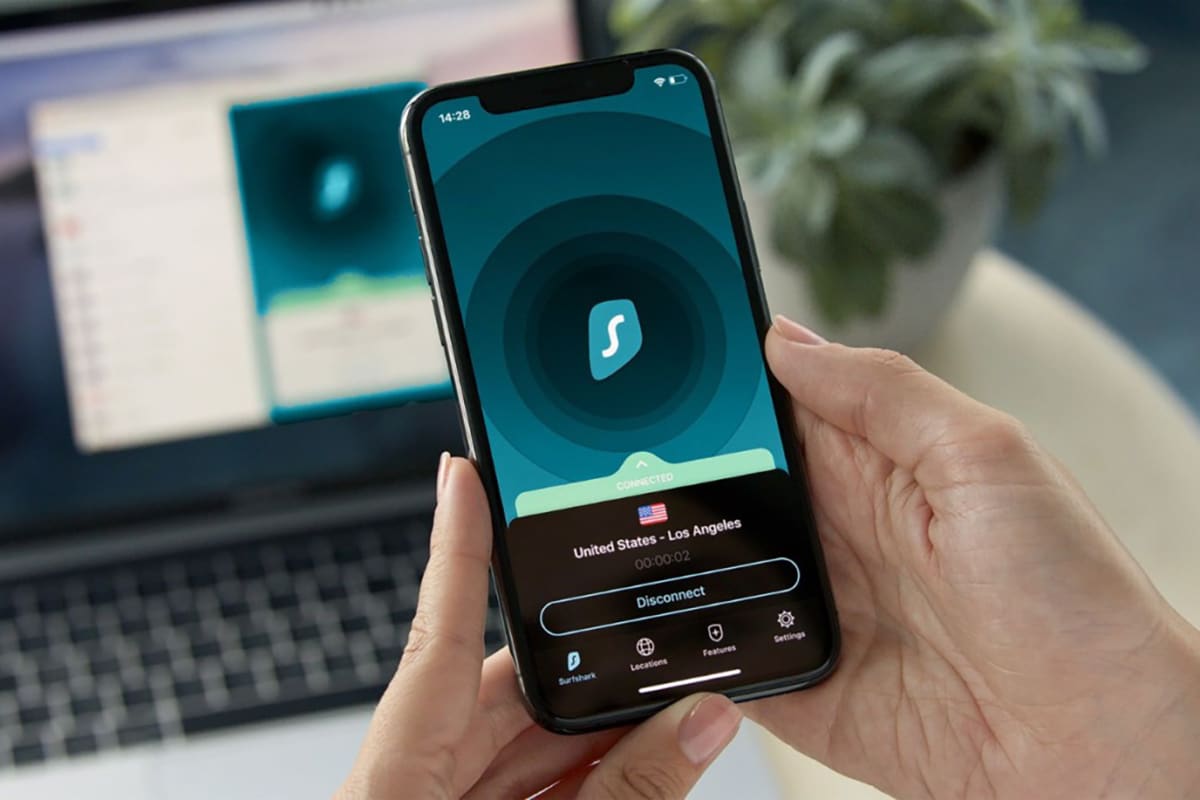As an experienced cybersecurity professional, I often get asked about the benefits of using proxy servers, especially ones based in the United States. In this comprehensive guide, I‘ll explain what exactly a proxy server is, the different types, and most importantly, the many advantages US-based proxies can provide both individuals and businesses through anonymity, security, bypassing restrictions, automation, and access control.
What Is A Proxy Server and How Does It Work?
A proxy server acts as an intermediary between a client program, such as a web browser or phone app, and the external server being accessed. The proxy sits between your computer and the website‘s server, receiving requests from clients before forwarding them outside the network.
It’s helpful to think of the proxy server as a gatekeeper, all your outbound traffic passes through it, where it can be monitored, filtered or transformed.
The main purpose of a proxy is to mask the originating IP address by assigning a new one to each request before passing it on. When the server receives the request, it sees the proxy‘s IP as the source, not the real originating one. The proxy receives the response from the server, and forwards it on to the client.
This anonymity provides many benefits which we‘ll discuss in detail later. There are several different types of proxy servers:
- Forward proxies – These sit in front of client programs like web browsers to mask IP addresses. Forward proxies are used to enable anonymity online.
- Reverse proxies – These are positioned in front of web servers to provide added security, load balancing, and caching. Reverse proxies protect origin servers from traffic.
- Transparent proxies – The client is aware of the proxy but does not need to configure browser settings to use it. Mainly used for access control.
- Anonymous proxies – Masks user information completely and does not reveal the originating IP address. High level of anonymity.
- High anonymity proxies – Assign IP addresses from a very large pool of IPs making it extremely difficult to trace traffic back to the original user.
- Residential proxies – Use IP addresses from residential internet connections to mimic home usage.
- Datacenter proxies – Use IP addresses hosted in data centers instead of residential ones.
- Shared proxies – Multiple users make requests from the same proxy IP address. Cheaper but less anonymous.
- Dedicated proxies – A single user gets exclusive access to use the proxy IP address. More private.
- Rotating proxies – Proxy IPs are automatically changed at set intervals for greater anonymity.
Here is a comparison of the main proxy server types:
| Proxy Type | Anonymity Level | IP Sources | Rotation | Users per IP |
|---|---|---|---|---|
| Residential | High | Residential ISPs | Usually Rotating | 1-2 |
| Datacenter | Low-Medium | Datacenters | Usually Static | Hundreds |
| Shared | Low | Mixed | No | Hundreds |
| Dedicated | Medium-High | Mixed | Usually Rotating | 1 |
Now that we‘ve covered the basics of what a proxy is and how it works, let‘s look at the many benefits you can enjoy by using one.
Benefits of Using a US Proxy Server
There are a number of great advantages to routing your internet traffic through proxy servers, especially ones based in the United States. Here are some of the major benefits US proxies can provide:
1. Online Anonymity and Privacy
One of the main reasons people use proxy servers is to browse the internet anonymously. By masking your real IP address and assigning a new one, proxies prevent online trackers from identifying who you are and linking your browsing behavior to you specifically.
It helps hide your digital footprint from advertisers who target ads based on your browsing history. A 2022 study by Statista found 69% of US adults are concerned about companies tracking them for ad targeting. Proxies make you harder to track.
It also provides a layer of protection against cyber criminals looking to steal your personal information through hacking methods like phishing. Symantec’s 2021 Threat Report found a 642% increase in cyber attack tools for sale on dark web marketplaces.
In addition, using proxies helps circumvent government surveillance programs that aim to monitor citizens‘ online activity. Since the NSA spying revelations in 2013, there is substantial public concern about such mass surveillance overreach. Proxies add a layer of privacy.
Residential and high anonymity proxies offer the highest level of privacy by rotating your IP address each request among a large pool of IPs belonging to home internet connections. This makes connecting the traffic back to any one person extremely difficult.
2. Enhanced Cybersecurity
Reverse proxy servers boost security for websites and applications by acting as an extra shield against cyber threats.
All incoming traffic is filtered through the proxy server first before being allowed to reach the origin server. This acts as a firewall to block various kinds of attacks including malware payloads, DDoS bombardment, SQL injection attempts, cross-site scripting, and other threats.
IBM estimates the average cost of a data breach has grown to $4.35 million in 2021. Reverse proxies help mitigate this risk and limit damage if an attack occurs by absorbing and deflecting malicious traffic.
Reverse proxies provide other security benefits as well like load balancing across multiple origin servers and caching content to speed up performance. Overall, the proxy shield helps harden infrastructure against constantly evolving cyber threats.
3. Bypassing Geographic Restrictions
Many popular websites like Netflix, Hulu, Spotify, BBC iPlayer, Pandora, ABC, HBO Now, and more engage in geo-blocking – restricting access to content based on the geographic location of users.
For example, Netflix USA has a much larger media catalog compared to other regional Netflix sites. Services want to enforce licensing agreements and distribution rights by territory through geo-blocking.
Connecting through a US-based proxy tricks these services into thinking you are located in the United States based on your new IP address. This allows you to easily bypass geo-restrictions and access US-only content from anywhere in the world.
According to data from Unblock-Us, 34% of users utilize proxies to bypass geo-blocks and VPN restrictions imposed by streaming media services. US proxies remain one of the simplest options to gain access.
4. Web Scraping & Data Collection
Web scraping is the automated harvesting of publicly available data from websites through bots and scraping tools. Proxy servers enable reliable large-scale web scraping by cycling through many IP addresses.
Trying to scrape large amounts of data from a single IP address is likely to get blocked. But utilizing residential rotating proxies gives access to thousands of US IP addresses from home internet connections. Using many different IPs intermittently avoids getting your scrapers shut out.
Web scraping has many legal and beneficial applications like:
- Search engine optimization – Gather data to identify trending keywords and topics to optimize content.
- Price monitoring – Track prices for hotel rooms, flights, products to adjust pricing.
- Market research – Compile data on competitors‘ offerings and pricing.
- Social listening – Monitor social media metrics and sentiment on brands.
- Building datasets – Create datasets for academic research and machine learning.
Between 28-40% of the traffic directed at many websites is from scrapers according to estimates by Imperva. Proxies enable you to gather data safely and efficiently at scale.
5. Improving Employee Productivity
Within a corporate network, proxy servers allow IT administrators to restrict access to certain websites and online services. Typically social media sites, entertainment portals, gaming sites are blocked to prevent employees from getting distracted and improve productivity.
Studies by Robert Half found 77% of companies say blocking or limiting access to non-work related sites has increased employee performance. A study in Journal of Economic Behavior & Organization also found significant productivity gains after blocking entertainment sites and social media at work.
Transparent proxies are ideal for access control as they don‘t require any specialized client configuration. Employees are aware certain sites are off-limits while managers retain control over settings. It‘s a discrete way to keep employees focused.
6. Social Media Management
For social media managers and influencers managing multiple accounts across platforms, proxies help overcome limits and restrictions:
- On Instagram, no more than 30 accounts can be created from the same IP address. But with residential rotating proxies you can use hundreds of different IPs to create and manage lots more accounts.
- TikTok has an daily limit allowing only 60 videos to be uploaded per IP address. Using proxies allows uploading many more videos per day.
- Twitter restricts follows/unfollows, likes and other engagement actions per IP. Proxies help avoid hitting rate limits.
- Craigslist also prohibits more than a few posts per day from one IP. Rotating datacenter proxies can enable making many more posts to Craigslist.
A Hitmarker study found 68% of content creators use proxies to help manage and grow their social media presence by overriding platform limits. Proxies give influencers and managers flexibility.
Conclusion
Proxy servers, especially US-based ones, offer powerful benefits ranging from anonymity and privacy to bypassing geographic restrictions imposed by content platforms. Both individuals who want to browse the web anonymously and businesses undertaking large-scale automation can benefit tremendously from using the right proxy service.
There are many types of proxies available, each with their own advantages. Factors like your desired anonymity level, rotating IP capabilities, and specialized targeting to US IPs should be considered when choosing a proxy provider. With the right solution, you can enjoy safe, private, and unrestricted access to the internet.




